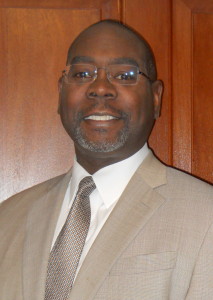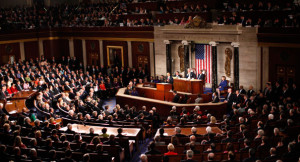“Isn’t pretty much everyone you represent a criminal? Why use tax money for that?” | An Interview With Federal Public Defender Kevin Butler
Reading Time: 4 minutes.

We took a few minutes and sat down with Kevin Butler, the Federal Public Defender in the Northern District of Alabama. Before he was appointed in 2012, the district was one of only four federal judicial districts, out of 94 nationwide, that lacked some form of public defender office to represent indigent criminal defendants.
If you are in the corporate world, I can hear you right now. You’re reminding yourself that you are an honest businessperson. If you are a lawyer — internal or external — you are reminding yourself that you do not represent defendants in the guns, drugs or child-porn sectors of the economy. Better to go read the Wall Street Journal. Or, at least, ESPN the Magazine.
Bear with us. There is more of you here than makes you entirely comfortable.
A graduate of Cornell University, Butler received his law degree from Arizona State University. Before coming to Birmingham, he was in the Federal Public Defender’s office in the Middle District, based in Montgomery. During his last eight years in Montgomery, her served as the Chief Assistant Federal Public Defender.
Butler also served as an Assistant Federal Public Defender in the Eastern District of California and in the District of Nevada.
Here is an excerpt from the interview:
1) What do FPDs do?
I believe the role of the Office of the Federal Public Defender has three key components. First, to provide outstanding and zealous representation to indigent persons charged with federal criminal offenses. Second, to maintain the highest level of skill and competence for all lawyers who represent the indigent through regular and consistent training. Third, to provide public service in the form of education and outreach regarding the impact federal criminal proceedings have on the community.
2) What drew you to it?
My parents instilled in me a fundamental appreciation of an individual’s right to liberty and their right to equal protection under the law. I have dedicated my career to helping ensure my clients afforded due process and equal protection of the law.
3) Isn’t pretty much everyone you represent a criminal? Why use tax money for that?
A key tenet of our legal system is fact that everyone accused of a crime by the government is presumed innocent. Furthermore, this presumption cannot be overcome unless the government (the prosecution) proves beyond a reasonable doubt that an individual has committed an offense. Societal and subjective beliefs regarding an individual’s guilt should never curtail or “short circuit” these tenets and they do not impact my desire to zealously represent an individual accused of a criminal offense.
4) What is your relationship like with the prosecutors?
Our criminal justice system is adversarial. Though adversarial in Court, in this District the prosecution and the defense bar enjoy a civil and collegial relationship. I believe all parties recognize that we have an ethical duty to zealously represent our side in criminal proceedings.
Therefore, as a rule neither party confuses zealous advocacy of their party’s interests with personal animosity.
5) Corporations can become defendants in criminal cases. Why should American businesses pay attention to and appreciate what the FPD does?
Whether a corporation or individual has been charged with a criminal offense, more often than not, the law, the procedure, and the policy governing the criminal proceedings are the same. Therefore, an effective strategy employed by my office on behalf of an individual often translates into effective strategies for the representation of a corporation.
* * *
What binds the Federal Public Defender client and the corporate client?

As the Steve Miller band pointed out in 1976, they both take the money and run.
Like a drug-dealer or the child-pornographer, the erstwhile-honest businessperson can be brought to earth like the birds in “The Decoys” by W.H. Auden (1907-1973):
Under the spell completely
They circle can serenely,
And in the tricky light
The masked hill has a purer greenness.
Their light looks fleeter.Alas, the signal given,
Fingers on trigger tighten.
The real unlucky dove
Must smarting fall away from brightness
Its love from living.
Take note of two of Mr. Butler’s points: the white-collar mindset regarding “innocence” and the applicability of FPD strategies to the defense of corporations and businesspeople.
First, as we have noted elsewhere, the power of the grand jury is underestimated, and the presumption of innocence is more theory than reality. Most people, most of the time, believe that most defendants charged with a crime probably committed the crime, yet business defendants think that, somehow, they will be believed if they can just tell their story. This mind-set of white-collar intent causes all sorts of misdirection and wrong steps, as in the Zachary Warren indictment, is one of the distressing aspects of the Supreme Court’s Salinas decision.

Second, in an age when Congress often addresses social ills, real or perceived, by criminalizing heretofore lawful conduct; when some federal judges publicly complain to prosecutors about an insufficient number of heads-on-pikes over financial failures; and when agents and investigators of business-crimes use techniques and technologies formerly reserved for street offenses and organized crime, it would be surprising if FPD defensive strategy and tactics did not transfer readily to the corporate arena.
Federal Public Defenders provide a necessary service to the country. Plus, as practitioners, we can learn a great deal from them.